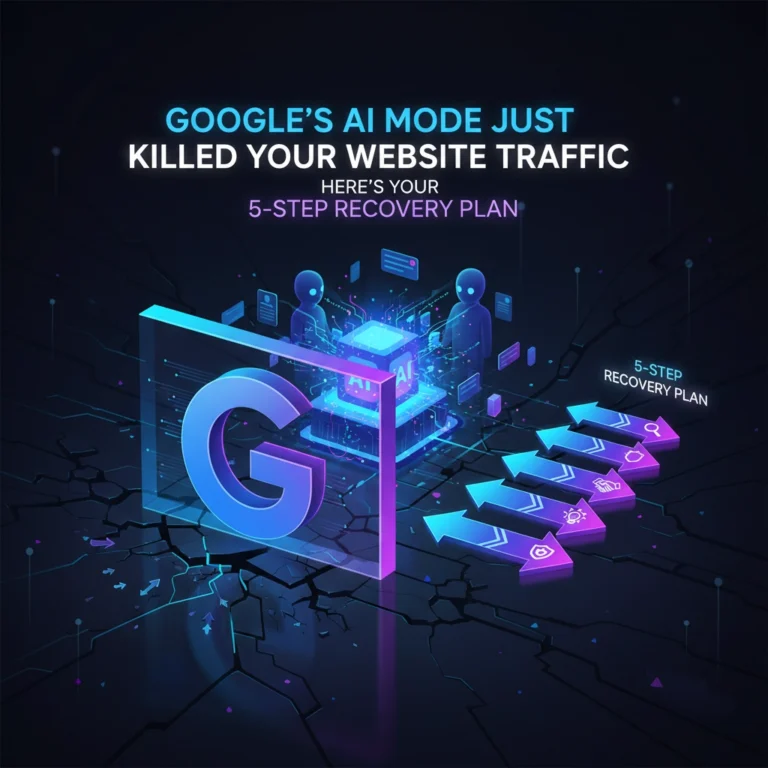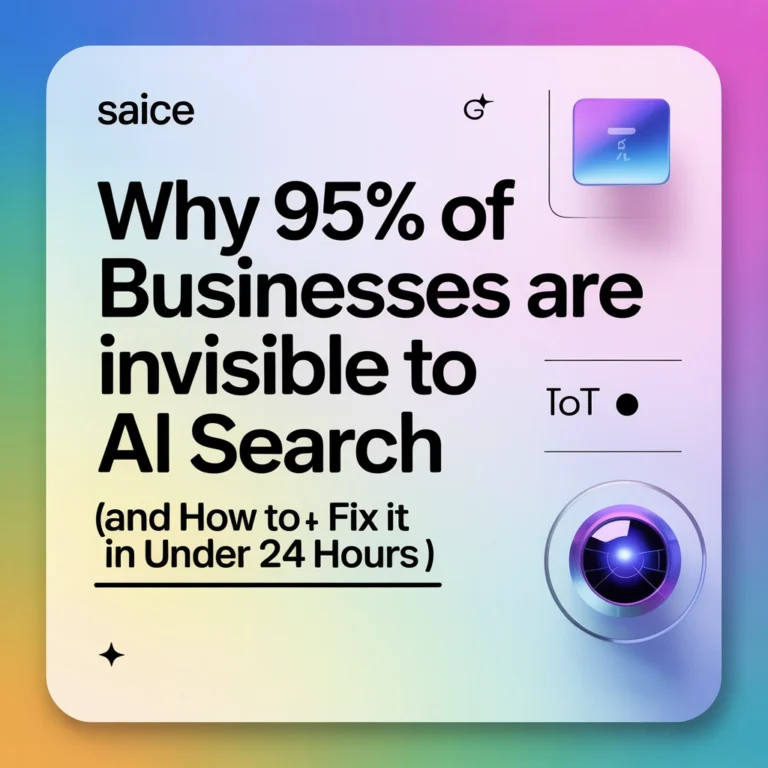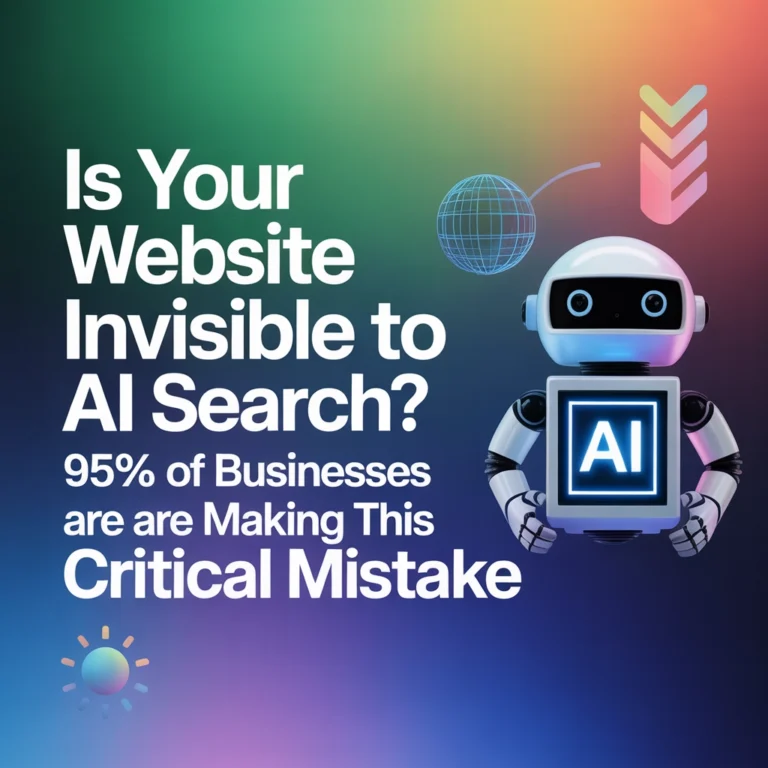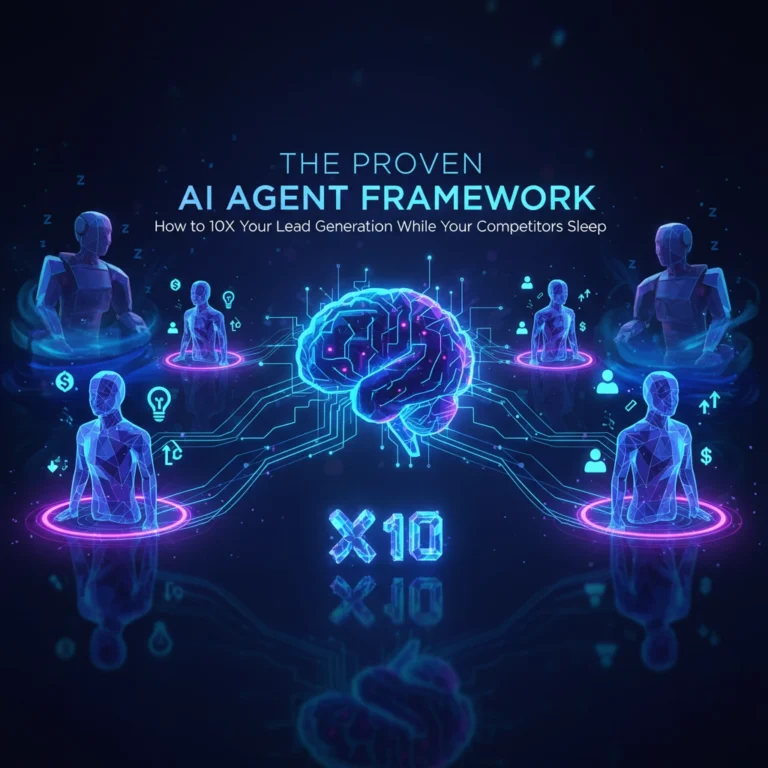Are Traditional SEO Rankings Dead? Why 90% of Websites Are Invisible to AI Search
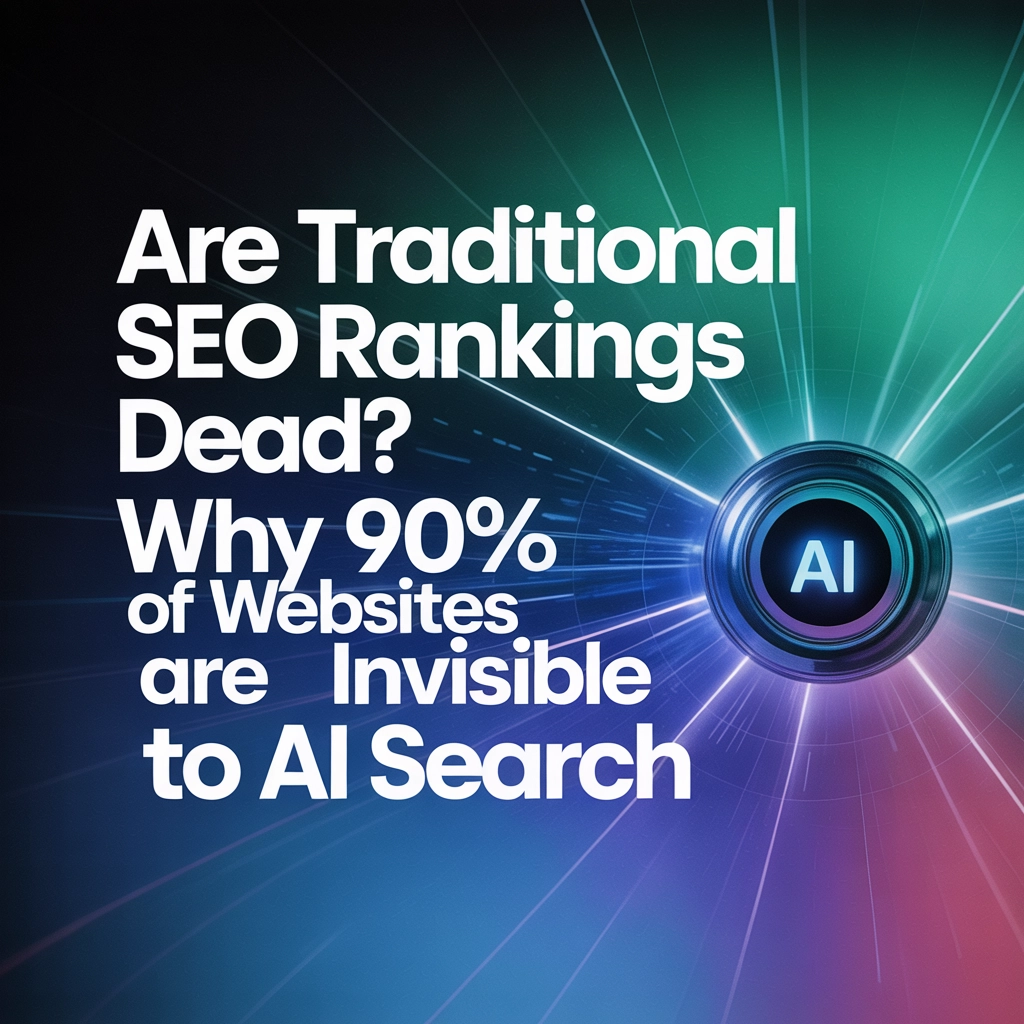
Here's a reality check that might sting: if you're still playing the traditional SEO game in 2025, you're essentially invisible to the fastest-growing search audience on the planet.
While you've been obsessing over Google rankings, AI search tools like ChatGPT, Perplexity, and Claude have quietly stolen 34-35% of your potential traffic. But here's the kicker: most businesses have no idea this is even happening.
The question isn't whether traditional SEO is dead (spoiler: it's not). The real question is whether your SEO strategy has evolved to compete in an AI-first search world.
The Great SEO Divide of 2025
Let's get one thing straight: organic search still drives 53.3% of all website traffic, and Google maintains its iron grip with 89.62% market share. Traditional SEO isn't going anywhere: but the rules of engagement have fundamentally changed.
Think about the last time you asked ChatGPT a business question. Did you click through to read five different articles, or did you get your answer right there in the chat? That's exactly what's happening to your potential customers every single day.

The old SEO playbook was simple: rank high, get clicks, convert visitors. The new reality is far more complex. AI search tools don't just rank websites: they synthesize information from multiple sources to create comprehensive answers. If your content isn't AI-friendly, you're not just losing rankings; you're losing the conversation entirely.
Why Your Website Is Invisible to AI Search
Here's where most businesses are getting it wrong. They're optimized for humans reading search results, not AI systems processing information. Traditional SEO focused on keyword density, meta descriptions, and backlink profiles. AI search optimization requires something entirely different: authoritative, comprehensive content that can be easily understood and synthesized.
Consider this: when someone asks an AI tool about digital transformation strategies, does your content provide clear, definitive answers that an AI can confidently cite? Or are you still writing fluffy blog posts stuffed with keywords?
Most websites fall into three visibility categories in AI search:
Completely Invisible: Your content never gets referenced because it's too shallow, outdated, or keyword-stuffed to provide real value.
Partially Visible: AI systems pull information from your content but don't cite or link back to you, essentially stealing your expertise.
Fully Visible: You're directly mentioned, cited as a source, or recommended as a solution: this is where you want to be.
The Hybrid Approach That Actually Works
Smart businesses aren't choosing between traditional SEO and AI optimization: they're mastering both. Here's what that looks like in practice:
Authority Still Rules Everything
Quality backlinks remain the backbone of search success, but the definition of "quality" has evolved. One authoritative link from a trusted industry source carries more weight than dozens of directory listings. AI systems also use link authority to determine which sources to trust and cite.
Technical Excellence Is Non-Negotiable
Page speed, mobile optimization, and Core Web Vitals have become even more critical. AI search tools favor websites that provide excellent user experiences, partly because these technical factors indicate reliability and professionalism.

Content Depth Beats Keyword Density
Instead of targeting specific keywords, create comprehensive resources that answer entire categories of questions. AI systems prefer content that demonstrates deep expertise over surface-level keyword matching.
The Three Pillars of AI Search Visibility
Pillar 1: Comprehensive Authority
Your content needs to be the definitive resource on your topic. This means going beyond basic blog posts to create in-depth guides, case studies, and thought leadership pieces that AI systems can confidently reference.
Pillar 2: Structured Information
AI systems love content that's easy to parse and understand. Use clear headers, bullet points, numbered lists, and structured data markup. The easier you make it for AI to extract information, the more likely you are to be cited.
Pillar 3: Real-World Proof
Case studies, client results, and specific examples carry enormous weight with both AI systems and human readers. Generic advice gets ignored; proven strategies get referenced and recommended.
What This Means for Your Business Right Now
If you're still measuring success purely by Google rankings and organic traffic, you're missing the bigger picture. The most successful businesses in 2025 are tracking AI mentions, citation frequency, and brand authority across multiple AI platforms.

This shift creates a massive opportunity for businesses that adapt quickly. While your competitors are still fighting over traditional search rankings, you can establish authority in AI search results: where there's less competition and higher trust.
The Cost of Staying Behind
Here's what happens to businesses that ignore AI search optimization: they become invisible to an entire generation of searchers who prefer AI tools over traditional search engines. These aren't just tech-savvy millennials: they're decision-makers, business owners, and your ideal customers.
Every day you delay adapting your strategy, competitors are building authority in AI search results. And unlike traditional SEO, where you can outrank competitors with enough effort, AI search authority is much harder to displace once established.
Taking Action in the Next 30 Days
The good news? You don't need to scrap your entire SEO strategy to compete in AI search. Start with these immediate steps:
Audit Your Current Content: Review your top-performing pages through an AI lens. Are they comprehensive enough to serve as authoritative sources? Do they provide clear, definitive answers?
Optimize for Synthesis: Rewrite key pages to be more AI-friendly. Use clear section headers, provide direct answers to common questions, and include supporting data and examples.
Build Real Authority: Focus on creating content that demonstrates genuine expertise rather than keyword optimization. AI systems are remarkably good at identifying authentic authority.

Monitor AI Mentions: Start tracking how often your brand appears in AI search results for relevant queries. This is your new most important metric.
The businesses thriving in 2025 aren't just visible in traditional search: they're trusted authorities in AI search results. They understand that the future of SEO isn't about gaming algorithms; it's about becoming the definitive source of information in your industry.
Traditional SEO rankings aren't dead, but they're no longer enough. The question is: will you adapt to the new reality, or will you remain invisible to the fastest-growing segment of searchers?
Your next customer might never see a Google search result page. They'll ask an AI tool for recommendations, and either your business will be mentioned, or your competitors will be. The choice is yours.
Ready to make your business visible to AI search? Start with a strategy consultation to see where you stand and what needs to change.

